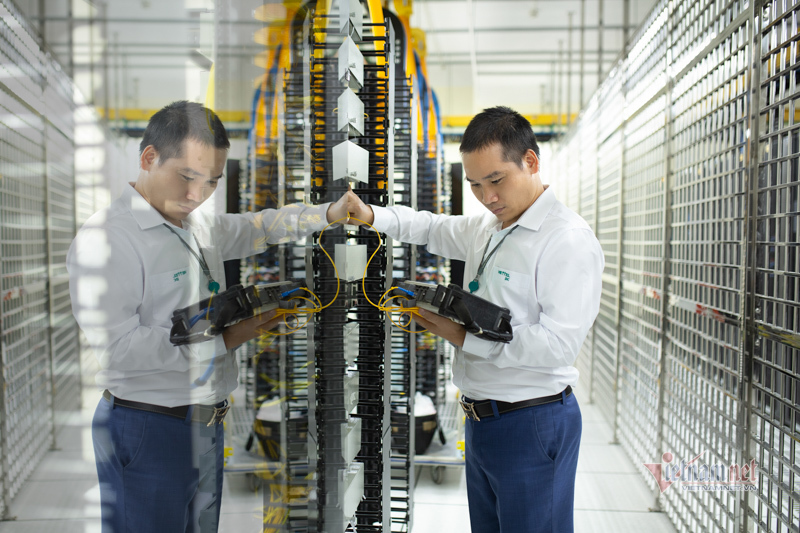Data defined as new resource for economic and social development
Most recently, Vietnam's e-government development strategy towards digital government for the period 2021-2025 with a vision to 2030 has clearly identified that data is a new type of resource.

On November 16, the Vietnam Digital Communications Association hosted the Asia Open Data Partnership Conference 2021 in Hanoi, an annual conference that has been organized by the Asia Open Data Partnership (AODP) and its partners since 2015. This is the first time Vietnam has hosted the conference.
According to a report from the European Data Portal, an initiative of the European Commission, the open data market was valued at 184.45 billion Euros in 2019 and is expected to reach about 199.51 - 334.20 billion euros by 2025.
Most governments around the world use open data to deploy solutions to improve their operations and citizens' rights, create development opportunities, foster innovation, and solve social problems.
There are three trends of using open data in the world today, including: commercializing open data and developing the data service industry; open data for digital development; and cooperation in comprehensive digital economy agreement.
Nguyen Minh Hong, Chairman of the Vietnam Digital Communications Association, said the data economy in general and open data in particular is the heart of the digital economy, bringing economic and social benefits to countries, people and businesses around the world.
For Vietnam, the economic value that data flows create through the use of digital technologies in commerce reached 81 trillion VND in 2017 and it can reach 953 trillion VND by 2030.
According to the draft national data strategy for the period 2021 - 2025, with a vision to 2030, Vietnam's goal is that the data economy will contribute 5% of GDP.
Le Quang Huy, Chairman of the National Assembly's Committee on Science, Technology and Environment, said that in the open trend, open data has important characteristics - publicly used, reused, and non-exclusive.
That means the community can exploit and use open data based on open licenses. It is also can continue to share that data with the community to promote its value.
Huy said that Asia with the largest population in the world, with a young, dynamic and creative workforce, needs to be a pioneer in the field of digital technology development, effective use, sharing of data to develop more prosperous. For Vietnam, this will also help the country join the global flow, solving the challenges and difficulties that it is facing.
Data is new kind of national resource
Deputy Minister of Information and Communications Nguyen Huy Dung said that the Covid-19 pandemic showed valuable lessons about the importance of open data and data sharing in planning the epidemic prevention strategy of each country. Vietnam recognized early on the importance of data and open data.
Most recently, Vietnam's e-government development strategy towards digital government for the period 2021-2025 with a vision to 2030 has clearly identified that data is a new type of resource. State agencies provide open data for the development of digital government, digital economy and digital society.
The Ministry of Information and Communications, with the role of coordinating the national digital transformation program, has been developing a roadmap to establish data standards, to ensure data of ministries, branches and authorities from central to local levels to be classified and shared scientifically, and ensure network security.
Internationally, open data development also requires cross-country cooperation. Because the digital economy is a global issue, if data is considered the lifeblood of the global economy, this data lifeblood must be established based on a widely accepted framework of standards and technical regulations.
Data is a special resource that is created in the process of using technology of the people. Unlike resources in nature, the more data resources are used, the more they are generated, and the more they create great value.
However, according to Mr. Dung, data sharing needs to be done appropriately, ensuring harmonization of cross-border data flows, network safety, and privacy of each individual in accordance with the laws of each country.
Through regional cooperation, Vietnam can move towards a comprehensive open data ecosystem, promoting regional and global digital economic integration.
The Ministry of Information and Communications is committed to accompanying the technology community and open data community at home and abroad, to jointly establish global data standards and regulations, thereby discovering and creating values from open data.
